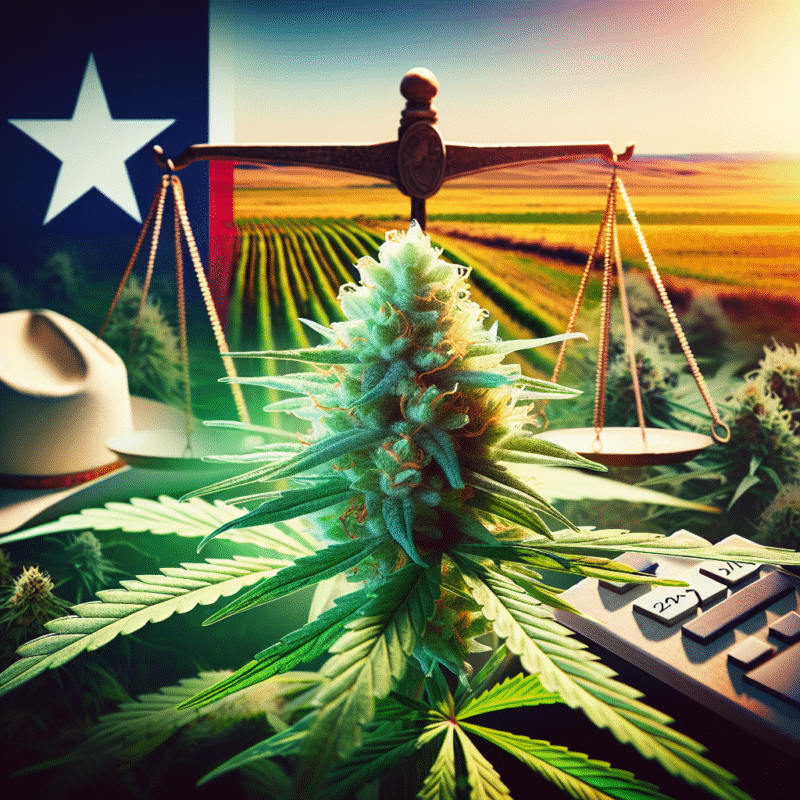Is Hemp Flower Legal in Texas? A Comprehensive Guide for 2023
As the cannabis landscape continues to evolve in the United States, understanding the legal status of hemp flower in Texas is essential for consumers, farmers, and entrepreneurs alike. This article serves as a comprehensive guide to navigating the legal complexities surrounding hemp flower in Texas as of 2023.
What is Hemp?
Hemp is a variety of the Cannabis sativa plant species that is cultivated specifically for industrial uses. Unlike marijuana, hemp contains only trace amounts of tetrahydrocannabinol (THC), the psychoactive compound that produces a "high." According to the 2018 Farm Bill, hemp is defined as cannabis containing less than 0.3% THC by dry weight.
Legal Background
The 2018 Farm Bill
The legality of hemp flower stems from the passing of the 2018 Farm Bill, which legalized hemp on a federal level. This legislation enabled states, including Texas, to develop their own regulatory frameworks for hemp production, processing, and sale.
Texas House Bill 1325
In 2019, Texas lawmakers passed House Bill 1325, aligning state law with the federal guidelines set forth by the 2018 Farm Bill. This law legalized the cultivation, processing, and sale of hemp and hemp-derived products in Texas, as long as the THC content remains below the legal limit.
Is Hemp Flower Legal in Texas?
Yes, But…
Hemp flower is legal in Texas, but with certain caveats. Here are the critical points to consider:
-
THC Limitation: Any hemp flower must contain less than 0.3% THC on a dry weight basis. Products exceeding this limit may be classified as marijuana and could lead to legal consequences.
-
Licensing: Farmers and businesses must obtain licenses from the Texas Department of Agriculture (TDA) to cultivate and sell hemp. As of now, individuals cannot grow hemp without proper licensing.
-
Retail Sales: Hemp flower can be sold in dispensaries and retail outlets across Texas, provided that the products comply with the THC limitations and other state regulations.
-
Testing Requirements: The TDA mandates that all hemp products, including hemp flower, undergo testing to ensure that they contain permissible levels of THC. This requirement helps protect consumers and maintain the integrity of the market.
- Local Regulations: While hemp flower is legal on the state level, local municipalities may have their own regulations governing the sale and distribution of hemp products. It’s crucial to check local laws to ensure compliance.
Uses of Hemp Flower
Hemp flower has various uses, including:
-
CBD Products: Hemp flower is rich in cannabidiol (CBD), a non-psychoactive compound known for its potential therapeutic benefits. It can be used to create CBD oils, tinctures, edibles, and topical products.
-
Industrial Uses: Beyond consumption, hemp flower can also be used in various industrial applications, including textiles, construction materials, and biofuels.
- Health and Wellness: Some consumers turn to hemp flower for relaxation and wellness. While it doesn’t create the same high as marijuana, many report benefits such as reduced anxiety and improved sleep.
The Future of Hemp in Texas
Texas has shown a burgeoning interest in the hemp industry, with many farmers and businesses looking to capitalize on the legal framework established by recent legislation. As the market continues to grow, ongoing research and consumer awareness will play essential roles in shaping the future of hemp agriculture and products.
Upcoming Legislation and Trends
As we move further into 2023, it is vital to stay informed about any changes to laws and regulations concerning hemp in Texas. Advocacy groups and industry associations are continually working to refine the legal landscape, and consumers should remain engaged in discussions that may affect their access to hemp flower and related products.
Conclusion
In summary, hemp flower is legal in Texas under the guidelines set forth by the 2018 Farm Bill and Texas House Bill 1325, provided it meets strict THC limitations and adheres to state regulations. As the hemp industry in Texas continues to grow, it offers numerous opportunities for consumers and entrepreneurs alike. Always stay current with local regulations to navigate this evolving market effectively.

